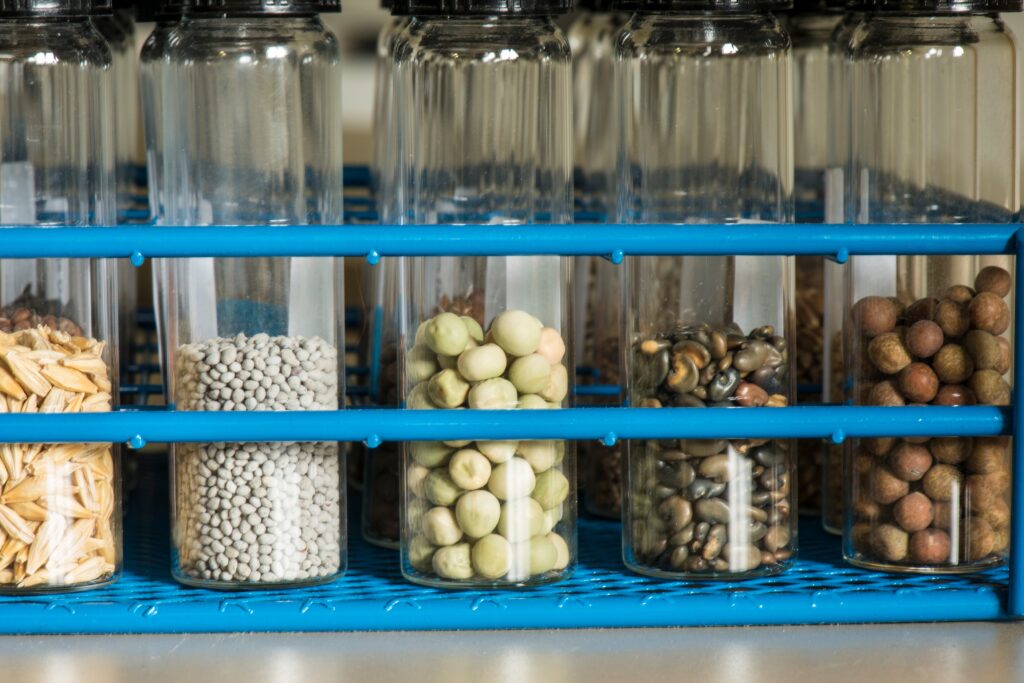Have you been called a big back recently? Don’t worry you’re not alone. Being called a big back isn’t even offensive anymore. It’s just another word in everyone’s day to day vocabulary. As a friend of mine once said “it’s not a size but a mentality.” Whether you eat 10 doughnuts or two fries someone out there will still say you’re a big back.
Big back this and and big back that, but it makes me wonder about what creates a big back? Is it just personal choices or also a component of American food culture and regulation?
In America, growth hormones and chemical preservatives are used to produce larger foods with longer shelf life, often at the cost of quality of the food. Bread, for example, can sit on a counter for weeks and still be edible. This seems normal, but in many other parts of the world, food lasting months after preparation is quite unusual.
In America, growth hormones and chemical preservatives are used to produce larger foods with longer shelf life, often at the cost of quality of the food.
To explore these differences, I interviewed two international students about their experiences with food in America. Yene Samuel is a third-year Business administration student from Ethiopia. She shares her experience in an interview with The Nubian Message.
The Nubian Message: How is the food in America compared to food in your country?
Yene Samuel: Firstly, food in my country, Ethiopia, everything is natural. It goes straight from the farm to the market, after packaging, nothing is processed and it doesn’t last longer than it should; whereas here the bread in America lasts how many weeks? Everything is processed here, it has chemicals. I also notice the food in Ethiopia is light but the food in America feels heavy and I always gain weight.
It’s been almost three weeks and I feel like I’ve already started gaining weight.
TNM: How does grocery shopping in America differ in Ethiopia?
Ys: For starters the grocery stores in Ethiopia are much smaller, and around the corner in every neighborhood. You can go buy fruits and vegetables and they’re very easily accessible. Here it’s like a scavenger hunt, you have to search through all the aisles and there are a lot of options. Do I want quality or the cheapest thing whereas in Ethiopia I see eggs and I grab them.
TNM: What is the difference in food preparation?
Ys: The portions here are insane, they could be shared by two people. The way we eat we have different entrees on a big plate to share but here you put everything on your plate and that’s it. We don’t eat dessert as often after our meals like cake, we normally finish our meals with fruit. Dessert is saved for when we go out.
Jesy Mamputu is a third year exchange student from the University of Manchester, England. He shares his experience eating in America and compares it to his experience in the United Kingdom.
TNM: How is the food in America compared to food in your country?
Jesy Mamputu: The food here is very unhealthy. It doesn’t feel like I’m eating food but like I’m consuming edible things. It also feels like a limitation to certain foods. For example, I’m lactose intolerant and there aren’t dairy-free alternatives here and it cuts out many options. 100 percent, being lactose intolerant isn’t a major obstacle for me in the UK and I can cook for myself. The dining hall food is just cow milk everywhere, yuk.
TNM: What’s the difference in how food is prepared that you’ve seen?
JM: From my experience here it seems like food is mass produced and it doesn’t feel like the food is made with love, it feels like it’s made for the masses.
TNM: What about the accessibility of fresh food?
JM: One thing I’ve found is that fresh food I feel like is inaccessible and I don’t even know where the nearest place for me to get healthy fruits is. The Target on Hillsborough Street is not a proper Target. You have to go to Harris Teeter and Whole Foods which are the more expensive stores. In the UK you can go to the cheapest grocery store and it’s like a class divide where if you don’t have the money your limited to fast food.
TNM: How is snacking in the UK?
JM: I’m actually worried about snacking here because the food regulations here are much looser. Here, I see all the options and it’s hard to differentiate the healthy stuff and the unhealthy. In the UK those things are sectioned out and in the UK you have to differentiate the calorie count and nutrition information. Popcorn is the only thing I feel comfortable snacking on.
TNM: Is there anything else you’ve noticed about food distribution in America?
JM: In the UK in grocery stores there are sections where you know all food in that section is gluten free or dairy free and I know it’s made from products I can consume. As a foreigner I’m not sure what brands are dairy free and I need to do research. Coming to America has made my lactose intolerance a big part of my personality. I’m not used to it and all my friends now know. In Fountain, I basically live in the simply made section which gets rid of the top nine allergens but, if I don’t want that what can I have? While I’m out here, there is so much I won’t be able to partake in because of the nature of the food making preparation here. The accessibility issue Mamputu mentioned is a widespread problem. The USDA reports that 23.5 million Americans live in “food deserts.” These are areas where fresh, nutritious food is scarce or prohibitively expensive. This scarcity disproportionately affects low-income communities, exacerbating health disparities.
The loose regulations Mamputu observed are also a matter of concern. The FDA has approved nearly 10,000 additives for use in food, many of which are banned in other countries due to potential health risks. For instance, artificial food dyes, common in American products, are either banned or require warning labels in the European Union.
The American food system, despite its abundance, is failing to prioritize health and accessibility. This calls for a reevaluation of our food policies, from production to distribution. We need a system that nourishes all Americans, regardless of their economic status or dietary needs.







